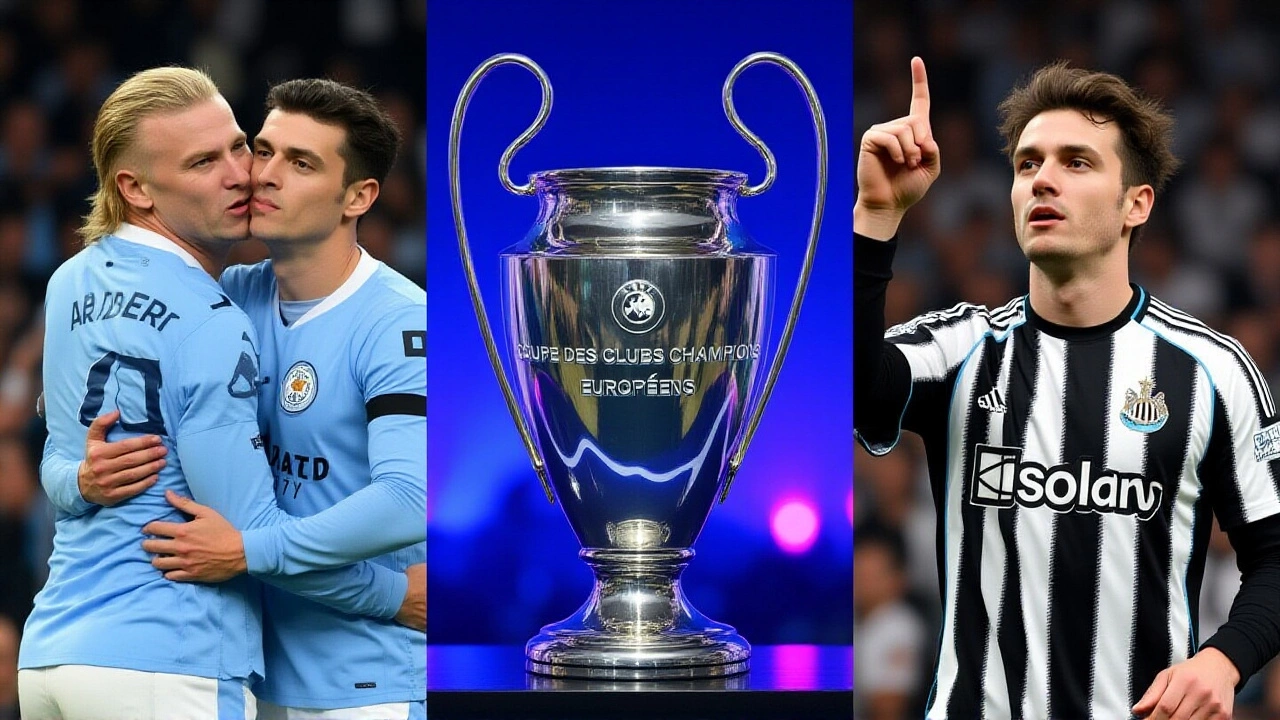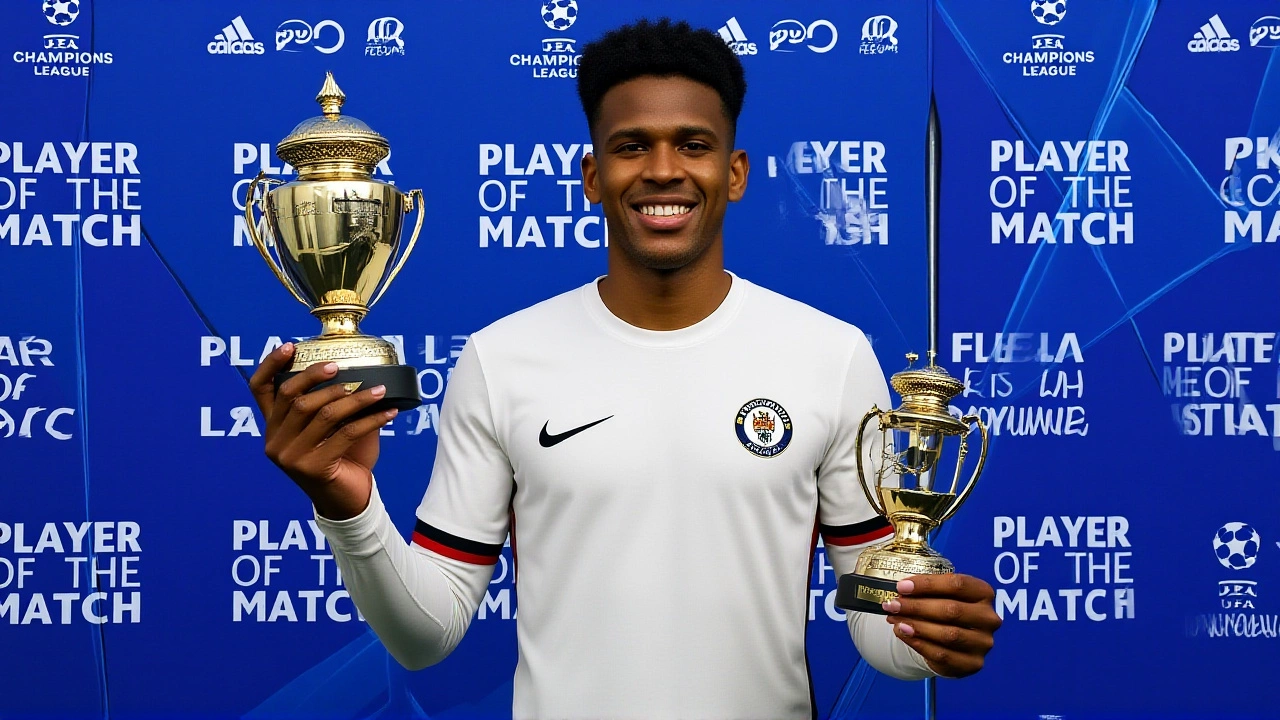When Estêvão Willian danced past two Barcelona defenders and fired a rocket into the top corner at Stamford Bridge on November 26, 2025, he didn’t just win Chelsea FC a 3-0 victory—he announced himself to Europe. The 18-year-old Brazilian winger became the third teenager ever to score in his first three UEFA Champions League starts, joining Kylian Mbappé and Erling Haaland in elite company. And it wasn’t just the goal. He created three chances, completed two dribbles, and touched the ball eight times in the box. The crowd roared. The stats screamed. And the UEFA Technical Observer Group had no choice but to hand him the official Player of the Match award—presented by PlayStation, as always.
The Rise of a Teenage Sensation
Estêvão Willian’s performance wasn’t luck. It was the culmination of months of quiet brilliance. Before this match, he’d netted nine goals in his last 13 appearances across club and country. He scored the winner against Liverpool just weeks prior. Against Barcelona, he didn’t just score—he dominated. His goal came after a perfect pass from Reece James, a step-over to evade Pau Cubarsi, a shoulder check to hold off Alejandro Balde, and then—pure instinct—a left-footed blast that left goalkeeper Joan Garcia frozen. "He’s got the world at the moment," said teammate Liam Delap in the post-match interview. "But you just hope he stays grounded. That’s the thing about kids like him—they can go either way." Chelsea manager Enzo Maresca was more measured. "Este [Estêvão] fantastic goal, but also off the ball, he worked hard. It was very good." No flashy praise. Just truth. And in football, that’s often the highest compliment.2025 Final: Doué’s Masterclass and PSG’s Historic Triumph
Just weeks before Estêvão’s breakout, the 2025 UEFA Champions League Final had already rewritten history. Paris Saint-Germain crushed Inter Milan 3-0 in an unmarked venue, with Désiré Doué stealing the show. The 19-year-old French forward scored twice—first with a calm finish after a Vitinha through-ball, then with a clinical strike off a Dembélé cross. His second goal, in the 63rd minute, made him the fourth-youngest scorer in Champions League final history. Only Patrick Kluivert (1995) and Senny Mayulu (who became the second-youngest scorer ever) were younger. The win was seismic. For the first time since FC Porto in 2004, a club outside Europe’s "Big Four" leagues (England, Spain, Italy, Germany) lifted the trophy. PSG’s triumph wasn’t just about talent—it was about timing. They’d built a squad that blended youth like Doué with experience like Ousmane Dembélé and Vitinha. And when the final whistle blew, Doué was handed the Player of the Match trophy—and later named UEFA Champions League Young Player of the Season.The 2025/26 Season: A New Era of Recognition
UEFA’s Player of the Match initiative, now in its second year under PlayStation sponsorship, has become one of the most watched metrics in club football. Unlike fan-voted awards, winners are selected by a rotating panel of UEFA Technical Observers—former coaches and ex-internationals—who watch every touch, pass, and tackle. Their decisions are final, and they’re published on UEFA.com within hours of each match. The 2025/26 season kicked off on September 16, 2025, with Gabriel Martinelli earning the first award of the campaign after Arsenal’s 2-0 win over Athletic Club. Anouar Ait El Hadj followed suit for Union Saint-Gilloise after their stunning 3-1 upset of PSV Eindhoven. Since then, the list has grown: Estêvão Willian on November 26, Kevin De Bruyne in Manchester City’s 4-1 win over Borussia Dortmund, and Harry Kane for his brace against Real Madrid in the October 22 fixture.
What’s Next? The November 26 Fixtures and Beyond
As of November 26, 2025, six more matches were set to determine the next wave of Player of the Match winners. Arsenal hosted Bayern München in a titanic clash at the Emirates. Paris Saint-Germain faced Tottenham in a rematch of last season’s semifinal. And Liverpool traveled to PSV Eindhoven looking to avenge their early-season loss. The stakes? Higher than ever. With the group stage winding down, each Player of the Match could be the difference between advancing or elimination. And for young talents like Estêvão, it’s a global spotlight—every goal, every assist, every tackle scrutinized by scouts from every top club in Europe.Why This Matters
This isn’t just about trophies or stats. It’s about identity. For decades, the Champions League was dominated by established stars—Ronaldo, Messi, Modrić. Now? The torch is passing. Estêvão Willian. Désiré Doué. Senny Mayulu. These aren’t just names on a leaderboard—they’re the future. And UEFA’s decision to spotlight them with an official, technical award isn’t just tradition. It’s a declaration: the game belongs to the next generation now.Frequently Asked Questions
How does the UEFA Player of the Match award work in the 2025/26 season?
The award is given after every Champions League match by the UEFA Technical Observer Group, a panel of former coaches and ex-international players who analyze every aspect of performance. Winners are announced on UEFA.com within hours of the final whistle and receive an official trophy presented by PlayStation. Unlike fan-voted awards, selections are based purely on technical metrics—pass accuracy, defensive actions, key passes, and impact on the game.
Who are the youngest scorers in Champions League final history?
Patrick Kluivert (17 years, 113 days) remains the youngest, scoring for Ajax in 1995. Senny Mayulu (17 years, 291 days) became the second-youngest in the 2025 final for Paris Saint-Germain. Désiré Doué (19 years, 207 days) is now the fourth-youngest, behind Kluivert, Mayulu, and Ronaldo (18 years, 118 days in 1997). Estêvão Willian, while not in a final, is now among the youngest to score in three consecutive Champions League starts.
Why was PSG’s 2025 Champions League win historic?
PSG became the first club outside England, Spain, Italy, or Germany to win the Champions League since FC Porto in 2004. Their victory shattered the long-standing dominance of Europe’s "Big Four" leagues. With a squad built around youth like Désiré Doué and experienced leaders like Ousmane Dembélé, PSG proved that financial power alone isn’t enough—it takes tactical innovation and homegrown talent to win at the highest level.
What makes Estêvão Willian different from other teenage prospects?
Unlike many teenagers who dazzle in flashes, Estêvão delivers consistently under pressure. He’s scored in his first three Champions League starts—a feat only Mbappé and Haaland achieved before him. He’s not just a finisher; he creates chances, presses intelligently, and thrives in tight spaces. His nine goals in 13 appearances across all competitions show he’s not a one-match wonder. Chelsea’s coaching staff say his mentality—humble, hungry, and focused—is as rare as his talent.
Which upcoming matches could produce the next Player of the Match?
The November 26 fixtures include Arsenal vs Bayern München, Paris Saint-Germain vs Tottenham, and Liverpool vs PSV Eindhoven—all high-stakes games with standout performers likely to emerge. If Biniam Girmay (PSG) continues his scoring streak, or if Phil Foden (Man City) delivers a masterclass against Dortmund, they could be strong contenders. Keep an eye on Arda Güler (Real Madrid) too—he’s been quietly influential in recent matches.
How has the Player of the Match award changed how fans follow the Champions League?
Before 2024, fans often only remembered the goalscorers or the captain lifting the trophy. Now, with daily award announcements, fans track rising stars like fantasy league players. Social media buzz spikes instantly after each match, with #UCLPotM trending globally. For clubs, it’s become a recruitment tool—youth academy prospects now know that a single Player of the Match award can trigger transfer offers from multiple top clubs within 48 hours.
